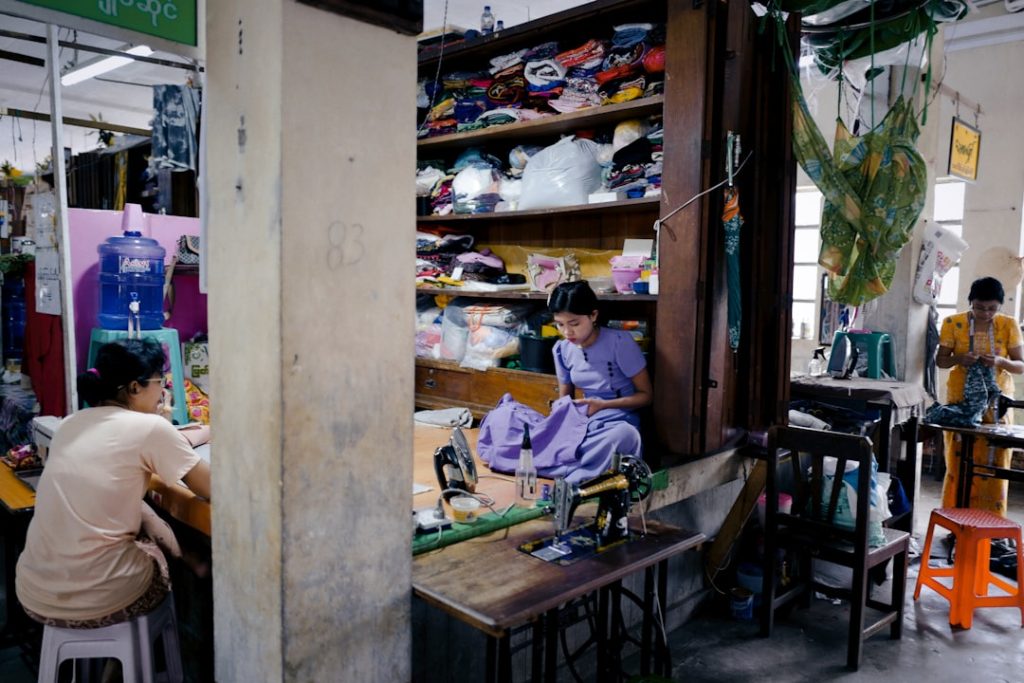Maintaining a cool environment for chickens is essential for their health and welfare, particularly during hot weather. Chickens are highly sensitive to elevated temperatures and can experience heat stress, potentially leading to illness or death if not properly managed. Unlike humans, chickens lack sweat glands and must rely on alternative methods to regulate their body temperature.
When temperatures rise, chickens pant and spread their wings to dissipate heat, but these mechanisms may be insufficient in extreme conditions. Chicken owners have a responsibility to implement measures that help their birds stay comfortable and safe during hot weather. These measures include providing adequate shade and shelter, ensuring proper coop ventilation, utilizing water and misting systems, adjusting feeding and watering schedules, monitoring for signs of heat stress, and employing additional cooling methods when necessary.
Heat stress in chickens can have significant negative impacts on their health. Prolonged exposure to high temperatures can result in decreased egg production, reduced feed intake, dehydration, and in severe cases, death. Heat stress also compromises the chickens’ immune systems, making them more vulnerable to diseases and infections.
In extreme situations, heat stress can progress to heat stroke, a potentially fatal condition. It is crucial for chicken owners to recognize the signs of heat stress and take preventive action. By understanding the importance of keeping chickens cool and implementing appropriate measures, owners can safeguard the well-being of their flock and promote their ability to thrive even in hot weather conditions.
Table of Contents
- 1 Providing adequate shade and shelter for your chickens
- 2 Ensuring proper ventilation in the chicken coop
- 3 Using water and misting systems to cool down your chickens
- 4 Adjusting feeding and watering schedules during hot weather
- 5 Monitoring your chickens for signs of heat stress
- 6 Implementing additional cooling methods for extreme heat situations
- 7 FAQs
- 7.1 What are some ways to keep chickens cool in hot weather?
- 7.2 How important is it to keep chickens cool in hot weather?
- 7.3 What are signs that chickens may be suffering from heat stress?
- 7.4 Are there specific breeds of chickens that are better suited for hot weather?
- 7.5 What should be the ideal temperature for chickens in hot weather?
Key Takeaways
- Keeping chickens cool is important for their health and well-being, especially during hot weather.
- Providing adequate shade and shelter is essential to protect chickens from direct sunlight and heat.
- Proper ventilation in the chicken coop is crucial to maintain air circulation and prevent heat buildup.
- Using water and misting systems can help cool down chickens and provide relief from high temperatures.
- Adjusting feeding and watering schedules during hot weather can help prevent heat stress and dehydration in chickens.
- Monitoring chickens for signs of heat stress, such as panting and lethargy, is important for early intervention.
- Implementing additional cooling methods, such as fans or ice packs, may be necessary during extreme heat situations to ensure the well-being of the chickens.
Providing adequate shade and shelter for your chickens
Providing Adequate Shade
Direct sunlight can quickly raise the temperature in the chicken coop, making it uncomfortable and potentially dangerous for the chickens. To prevent this, it’s essential to provide ample shade in the form of trees, shrubs, or artificial structures such as awnings or tarps. This will help block out the sun’s rays and create a cooler environment for the chickens to rest and seek refuge from the heat.
Ventilation and Insulation
In addition to shade, it’s also important to ensure that the coop itself is well-ventilated and has proper insulation to keep it cool. This can be achieved by using materials that reflect heat and by providing adequate airflow through windows, vents, or fans.
Shelter from Extreme Weather
Providing shelter for the chickens is crucial to protect them from extreme weather conditions such as heavy rain or strong winds. A well-built coop with a solid roof and walls will provide the necessary protection from the elements while also allowing for proper ventilation. It’s important to regularly inspect the coop for any signs of damage or wear and tear that could compromise its ability to provide shelter.
By providing adequate shade and shelter for your chickens, you can create a comfortable and safe environment for them to thrive in, even during the hottest days of summer.
Ensuring proper ventilation in the chicken coop

Proper ventilation is essential for keeping chickens cool and comfortable in their coop, especially during hot weather. Good ventilation helps remove excess heat, moisture, and odors from the coop while also providing fresh air for the chickens to breathe. Without proper ventilation, the coop can quickly become stuffy and hot, leading to heat stress and other health issues for the chickens.
To ensure proper ventilation, it’s important to have windows or vents that can be opened to allow for airflow. Additionally, installing fans or exhaust systems can help improve air circulation and keep the coop cool. It’s also important to consider the design and layout of the coop to maximize ventilation.
The coop should be positioned in a way that allows for natural airflow while also providing protection from direct sunlight and strong winds. This can be achieved by strategically placing windows and vents to take advantage of prevailing winds and by using materials that allow air to pass through while still providing insulation. Regularly cleaning the coop and removing any debris or obstructions that could block airflow is also crucial for maintaining proper ventilation.
By ensuring proper ventilation in the chicken coop, you can create a comfortable and healthy environment for your chickens to thrive in, even during the hottest days of summer.
Using water and misting systems to cool down your chickens
Water is a crucial tool for keeping chickens cool during hot weather. Providing access to clean and cool water is essential for preventing dehydration and helping chickens regulate their body temperature. It’s important to regularly check water sources to ensure they are clean and free from contaminants that could make the chickens sick.
Additionally, it’s a good idea to provide multiple water sources throughout the coop and run to ensure all chickens have easy access to water at all times. In addition to regular water sources, using misting systems can also help cool down chickens by creating a fine mist that evaporates quickly and lowers the surrounding temperature. Misting systems can be set up in the coop or run to provide a cooling effect for the chickens.
These systems work by releasing a fine mist of water into the air, which then evaporates and cools down the surrounding area. Misting systems are particularly effective in dry climates where humidity levels are low, as they can help increase moisture in the air while also providing a cooling effect. It’s important to monitor misting systems regularly to ensure they are functioning properly and not causing excessive moisture buildup in the coop.
By using water and misting systems to cool down your chickens, you can help them stay comfortable and healthy even during the hottest days of summer.
Adjusting feeding and watering schedules during hot weather
During hot weather, it’s important to adjust feeding and watering schedules for your chickens to help them stay cool and hydrated. Chickens may eat less during hot weather, so it’s important to monitor their feed intake and adjust accordingly. Feeding smaller meals more frequently throughout the day can help prevent overeating while also ensuring that chickens are getting enough nutrients to stay healthy.
Additionally, it’s important to provide high-quality feed that is formulated for hot weather conditions, as this can help support the overall health of the chickens during periods of heat stress. In addition to adjusting feeding schedules, it’s also important to pay attention to watering schedules during hot weather. Chickens need access to clean and cool water at all times to prevent dehydration and help regulate their body temperature.
It’s important to regularly check water sources to ensure they are clean and free from contaminants that could make the chickens sick. Providing multiple water sources throughout the coop and run can also help ensure all chickens have easy access to water at all times. By adjusting feeding and watering schedules during hot weather, you can help your chickens stay comfortable and healthy even when temperatures are soaring.
Monitoring your chickens for signs of heat stress

Recognizing the Signs of Heat Stress
Some common signs of heat stress in chickens include panting, lethargy, decreased egg production, decreased feed intake, pale combs and wattles, and spreading wings away from the body.
Helping Your Chickens Cool Down
If you notice any of these signs in your chickens, it’s essential to take immediate action to help them cool down. Providing access to shade and cool water is vital, as this can help lower their body temperature and prevent dehydration. Using misting systems or fans in the coop or run can also help create a cooler environment for the chickens.
Additional Measures to Support Overall Health
Additionally, adjusting feeding schedules and providing high-quality feed formulated for hot weather conditions can help support their overall health during periods of heat stress. By monitoring your chickens for signs of heat stress and taking proactive measures to help them cool down, you can prevent serious health issues and ensure the well-being of your flock.
Implementing additional cooling methods for extreme heat situations
In extreme heat situations, it may be necessary to implement additional cooling methods to help your chickens stay comfortable and safe. One effective method is using ice packs or frozen water bottles placed in the coop or run to create a cooling effect. These frozen items can help lower the surrounding temperature and provide relief for the chickens during periods of extreme heat.
Another option is using evaporative cooling pads or curtains in the coop or run, which work by drawing warm air through wet pads or curtains to create a cooling effect. In addition to these methods, providing access to shallow pools or dust baths filled with cool water can also help chickens lower their body temperature during extreme heat situations. Chickens enjoy wading in shallow water or dust bathing in cool soil, which can provide relief from high temperatures.
It’s important to monitor these additional cooling methods regularly to ensure they are functioning properly and not causing excessive moisture buildup in the coop or run. By implementing additional cooling methods for extreme heat situations, you can help your chickens stay comfortable and healthy even during the most challenging weather conditions. In conclusion, keeping chickens cool during hot weather is essential for their health and well-being.
By providing adequate shade and shelter, ensuring proper ventilation in the coop, using water and misting systems, adjusting feeding and watering schedules, monitoring for signs of heat stress, and implementing additional cooling methods when necessary, you can create a comfortable environment for your flock even during the hottest days of summer. It’s important for chicken owners to be proactive in caring for their flock during hot weather by understanding the importance of keeping chickens cool and taking necessary measures to prevent heat stress and other health issues. With proper care and attention, you can help your chickens thrive even in extreme heat situations.
If you’re looking for more information on keeping chickens cool, you might be interested in this article on how big a coop needs to be for a chicken. It’s important to provide adequate space and ventilation for your chickens to stay comfortable in hot weather.
FAQs
What are some ways to keep chickens cool in hot weather?
Some ways to keep chickens cool in hot weather include providing shade, ensuring good ventilation in the coop, offering cool water to drink, and using misters or fans to lower the temperature.
How important is it to keep chickens cool in hot weather?
It is very important to keep chickens cool in hot weather as they are susceptible to heat stress, which can lead to illness or even death. Keeping chickens cool also helps to maintain egg production and overall health.
What are signs that chickens may be suffering from heat stress?
Signs that chickens may be suffering from heat stress include panting, lethargy, reduced egg production, and seeking out shady areas. It’s important to take action to cool them down if you notice these signs.
Are there specific breeds of chickens that are better suited for hot weather?
Yes, some chicken breeds are more heat-tolerant than others. Breeds such as Leghorns, Rhode Island Reds, and Sussex are known for their ability to handle hot weather better than breeds with heavier feathers or smaller combs.
What should be the ideal temperature for chickens in hot weather?
Chickens are comfortable in temperatures ranging from 65-75°F, so it’s important to try to keep their environment within this range during hot weather. Taking measures to keep them cool can help achieve this.
Meet Walter, the feathered-friend fanatic of Florida! Nestled in the sunshine state, Walter struts through life with his feathered companions, clucking his way to happiness. With a coop that’s fancier than a five-star hotel, he’s the Don Juan of the chicken world. When he’s not teaching his hens to do the cha-cha, you’ll find him in a heated debate with his prized rooster, Sir Clucks-a-Lot. Walter’s poultry passion is no yolk; he’s the sunny-side-up guy you never knew you needed in your flock of friends!







